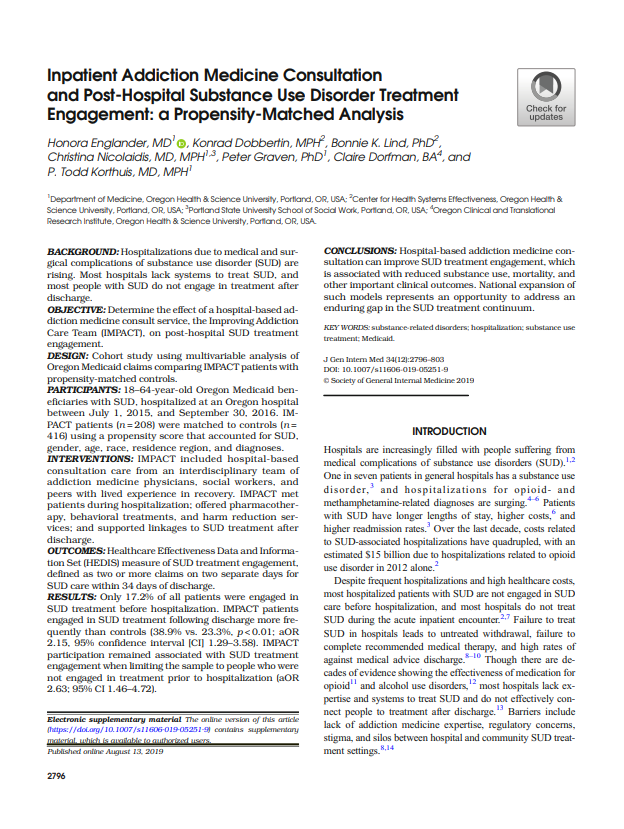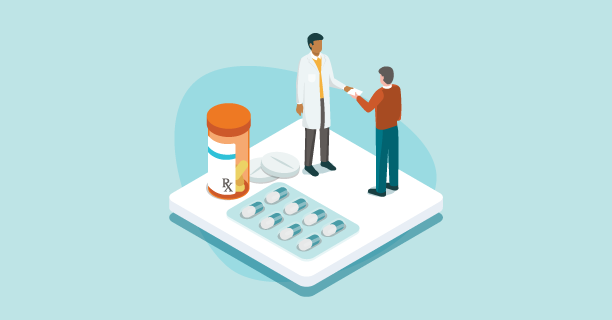Headline
An interdisciplinary, hospital-based addiction medicine consultation team improved substance use disorder (SUD) treatment engagement after hospitalization.
Context
People hospitalized with medical complications of SUD, especially for opioid- and methamphetamine-related diagnoses, have a high risk for drug-related death and suicide after discharge. SUD-related hospitalizations are costly, as patients with SUD have longer lengths of stay, higher costs, and higher readmission rates. However, most hospitals do not have systems to treat patients with SUD during these acute inpatient encounters. This study of the Improving Addiction Care Team (IMPACT) hospital-based addiction consult service compared patients who received the IMPACT intervention with a propensity-matched control group.
Findings
The IMPACT participants engaged in post-discharge SUD treatment at twice the rate they had prior to hospitalization (39% to 17%) and had greater engagement than matched controls (39% vs. 23%). Engagement was even greater for patients with opioid use disorder. Post-discharge SUD treatment included two or more treatments engagements (e.g., filled prescriptions for medications for addiction treatment, outpatient clinic visit for SUD) within 34 days post-discharge.
Takeaways
Hospitalization is a key moment to initiate care for people with SUD. Hospitals should develop addiction medicine consultation teams to comprehensively assess patients with SUD or suspected SUD and to offer the initiation of treatment, including medications for addiction treatment, behavioral therapies, and follow-up.



